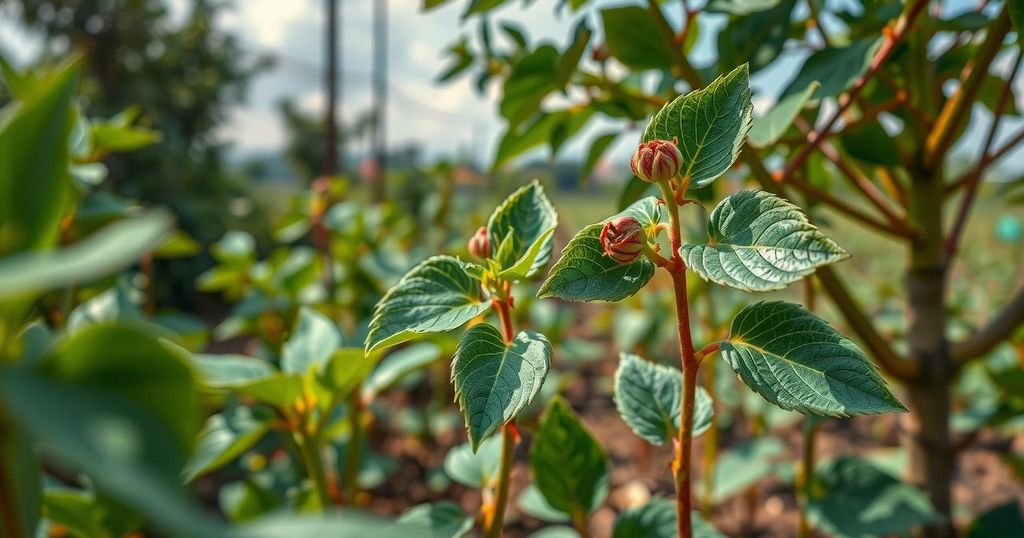A study by CABI reveals that strengthening plant health systems in South Sudan can significantly reduce crop losses caused by climate-change-induced invasive pests. The rise of pests like the fall armyworm, coupled with low access to plant health services, threatens food security for approximately 86% of rural households. The study recommends systematic improvements in plant health delivery and farmer education on integrated pest management to enhance overall agricultural sustainability.
A recent study conducted by the Centre for Agriculture and Bioscience International (CABI), published in the CABI Agriculture and Bioscience journal, highlights the importance of strengthening the plant health system in South Sudan as a means to mitigate the crop losses associated with invasive pests exacerbated by climate change. This research points to climate change as a catalyst for the emergence of new pest species and diseases that threaten essential crops, including elegant grasshoppers, bollworms, cassava whiteflies, and fall armyworms, which have recently affected agriculture in the region. The fall armyworm (FAW) has emerged as a particularly concerning pest in South Sudan, impacting key staple crops such as maize, sorghum, and millet. This is compounded by the country’s classification as one of the most affected regions by climate change, where extreme climatic events threaten agricultural productivity and food security. A report from the United Nations Environmental Programme (UNEP) reveals that approximately 86% of rural households in South Sudan rely on agriculture for their livelihoods, making the rising incidence of crop pests a critical issue. Despite the dire circumstances, a study involving 960 farmers across various regions showed a significant lack of access to essential plant health services, including training and advisory resources. Farmers have primarily relied on non-governmental organizations and UN agencies for support, indicating an urgent need for enhanced government-led initiatives. The survey also highlighted the severe impact of the fall armyworm, which can lead to destructive yield losses across multiple crops. According to data from the World Bank, notable plant diseases such as cassava mosaic virus and other crop-specific diseases have also been identified, emphasizing the scale of the problem. With 87% of the population facing food insecurity attributed to climate-induced shocks, the need for a comprehensive plant health system becomes increasingly apparent. The study calls for a systemic approach to improving plant health delivery and fostering farmers’ expertise in integrated pest management and surveillance activities. Ultimately, these strategies aim to enhance agricultural productivity and sustainability in South Sudan.
The ongoing impact of climate change on agricultural systems globally has become a critical topic, particularly in regions like South Sudan, where the agricultural sector is the backbone of the economy and sustenance for the majority of the population. The invasion of new pest species and the increase in plant diseases are directly linked to climate variables, presenting formidable challenges to food security. This research by CABI underscores the necessity for a robust plant health system capable of addressing these challenges through comprehensive support to farmers, improved access to quality resources, and strategic government interventions. The significance of pests such as the fall armyworm and ongoing plant diseases highlights the urgent nature of this situation as South Sudan grapples with heightened food insecurity and agricultural instability.
In conclusion, the study underscores that strengthening the plant health system in South Sudan is imperative for reducing crop losses linked to invasive pests and climate change. The findings reveal a significant gap in resources and support available to farmers, emphasizing the need for enhanced government initiatives and farmer training to combat pest threats. By implementing strategic interventions and improving access to plant health services, the potential exists to bolster agricultural productivity and protect the livelihoods of the rural population dependent on farming.
Original Source: farmersreviewafrica.com






